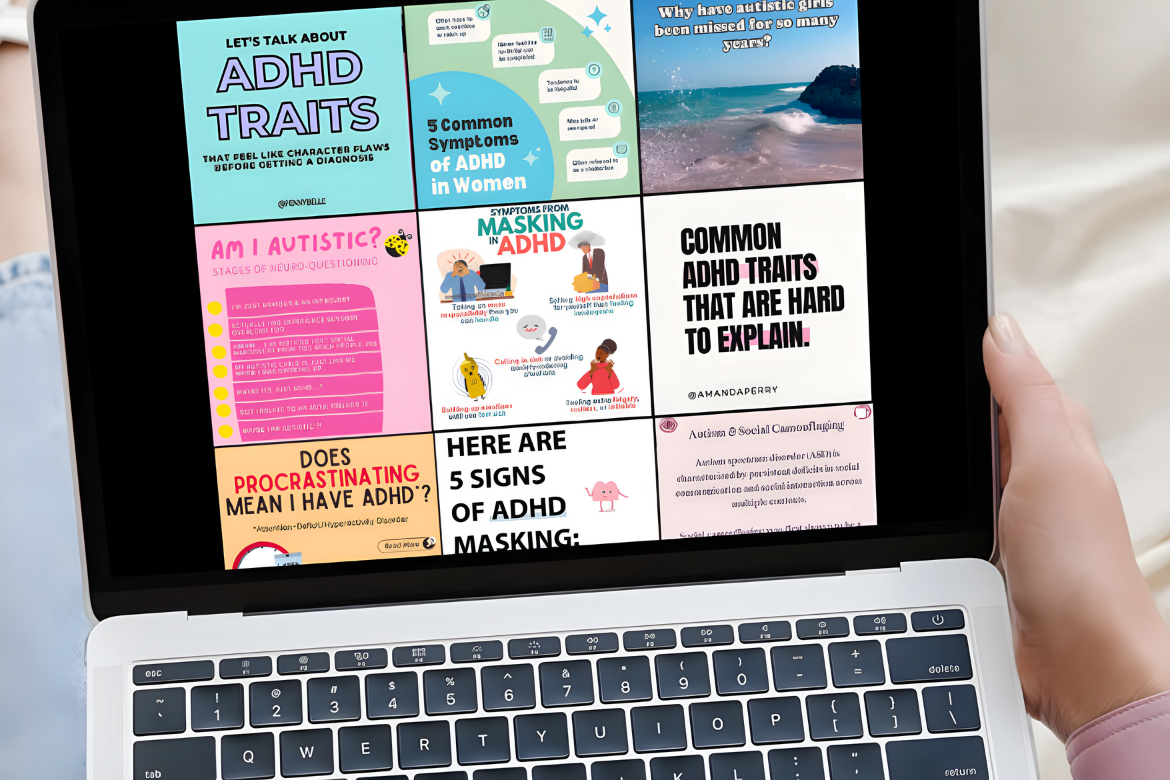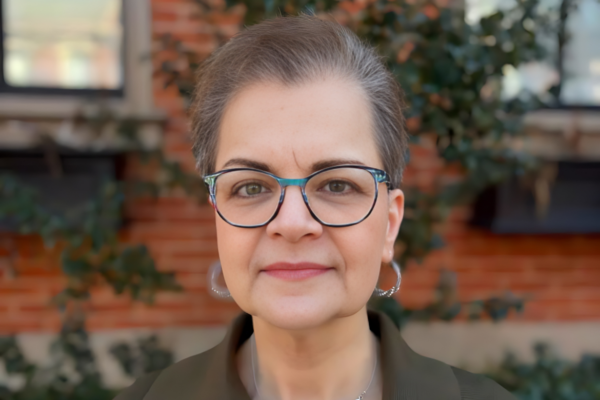

Attention Deficit Hyperactivity Disorder (ADHD) is a neurodevelopmental disorder that affects individuals of all ages, often making it challenging to focus, control impulses, and manage daily tasks. However, with the right treatment and support, individuals with ADHD can thrive and lead fulfilling lives. This webpage serves as a comprehensive guide to ADHD treatment for kids and adults, providing valuable insights into the various approaches available to effectively manage this condition.
Understanding ADHD
Before delving into treatment options, it’s crucial to have a basic understanding of ADHD, which often involves challenges related to executive functioning. This complex neurodevelopmental disorder is characterized by core symptoms, including:
- Inattention: Difficulty sustaining attention, frequent careless mistakes, trouble organizing tasks, and forgetfulness.
- Hyperactivity: Restlessness, excessive talking, fidgeting, and difficulty staying seated.
- Impulsivity: Acting without thinking, interrupting others, and difficulty waiting for one’s turn.
ADHD is not a one-size-fits-all condition; it presents differently in each individual. Additionally, it can co-occur with other conditions, such as anxiety, depression, or trauma, further complicating diagnosis and treatment.
Executive functioning, a set of mental skills that help with managing time, paying attention, switching focus, planning and organizing, and remembering details, plays a critical role in understanding and addressing ADHD. In individuals with ADHD, executive functioning challenges can significantly impact daily life. These challenges may manifest as difficulties in time management, attention and focus, organization, impulse control, memory, and flexibility. Understanding the interplay between ADHD symptoms and executive functioning is crucial for tailoring effective treatment strategies. By addressing executive functioning challenges, individuals with ADHD can enhance their ability to manage their symptoms and lead more fulfilling lives.
The Role of ADHD Testing
One of the foundational elements in the ADHD treatment journey is comprehensive ADHD testing. This process serves multiple purposes that are vital for effective management:
- Confirming Diagnosis: The first and foremost role of ADHD testing is to confirm the diagnosis. This typically involves a comprehensive assessment that may include clinical interviews, behavioral observations, and standardized rating scales. These assessments help healthcare professionals determine whether an individual meets the criteria for an ADHD diagnosis.
- Subtype Identification: ADHD is not a one-size-fits-all condition. It’s categorized into three subtypes: predominantly inattentive presentation, predominantly hyperactive-impulsive presentation, and combined presentation. Accurate testing can help pinpoint which subtype(s) an individual exhibits, allowing for a more tailored treatment plan.
- Assessing Co-Occurring Conditions: ADHD frequently accompanies other conditions like anxiety, depression, or trauma. The symptoms of these conditions may resemble those of ADHD, such as difficulties with focus and concentration, especially in individuals experiencing anxiety or trauma. It’s essential to note that incorrect treatment can exacerbate these symptoms. To navigate this complexity, proper testing plays a vital role in identifying these comorbid conditions. Addressing them appropriately can greatly improve the effectiveness of treatment.
- Baseline Assessment: ADHD testing serves as a baseline assessment to measure the severity of symptoms and functional impairment. This baseline provides a reference point to track progress during treatment and make adjustments as needed.
- Treatment Planning: ADHD testing is a crucial tool in developing a personalized treatment plan. The results help guide decisions regarding the choice of behavioral interventions, medication, and other support measures. For example, if testing reveals significant inattention but minimal hyperactivity, the treatment plan may focus more on strategies for improving attention.

Multimodal Approach to ADHD Treatment
Effective ADHD treatment typically follows a multimodal approach, combining various strategies to address the complex nature of the disorder. The primary treatment modalities for ADHD include:
- Behavioral Interventions: Behavioral therapy is a cornerstone of ADHD treatment for kids especially. This approach helps individuals develop essential skills and coping mechanisms to manage their symptoms. Key components of behavioral therapy include:
- Parent Training: Equipping parents with the skills to manage their child’s behavior and create a structured environment.
- Cognitive-Behavioral Therapy (CBT): Teaching individuals to recognize and modify negative thought patterns and impulsive behaviors.
- Medication: Medication is another valuable tool in ADHD Treatment, particularly for those with moderate to severe cases. Commonly prescribed medications include:
- Stimulants: Such as methylphenidate (Ritalin) or amphetamine (Adderall), which can enhance focus and reduce hyperactivity.
- Non-Stimulants: Medications such as atomoxetine (Strattera) and guanfacine (Intuniv) have multiple applications. They are suitable for individuals dealing with co-occurring anxiety or medical issues that preclude the use of stimulants. Non-stimulants can also be considered as complementary treatment alongside stimulants. Additionally, they are an option for individuals with substance use disorders, where stimulant use may hinder their recovery.
- Medication decisions should be made in consultation with a healthcare professional and tailored to the individual’s needs.
- Education and Support: Education about ADHD is essential for individuals, families, and educators. Understanding the condition’s impact and learning effective strategies for managing it can lead to improved outcomes. Support groups and organizations dedicated to ADHD can provide valuable resources and a sense of community for those affected.
- Lifestyle Modifications: Certain lifestyle changes can significantly benefit individuals with ADHD. These include:
- Regular Exercise: Physical activity can help manage hyperactivity and improve focus.
- Balanced Diet: A diet rich in nutrients, particularly omega-3 fatty acids, can support cognitive function.
- Adequate Sleep: Prioritizing sleep hygiene to ensure restful nights.
ADHD Treatment Across the Lifespan
ADHD doesn’t only affect children; it frequently continues into adulthood and is often diagnosed later in life. Therefore, ADHD treatment must be adaptable to different life stages.
- Childhood and Adolescence: Early intervention is vital for ADHD Treatment for Kids. Behavior therapy, education, and parental support are essential components of treatment. Medication for children may be considered when symptoms significantly impact daily life.
- Adulthood: There has been a notable increase in ADHD diagnoses among adults in recent years. This trend highlights the importance of recognizing ADHD beyond childhood and underscores the need for tailored support and treatment options for adults navigating this condition. Adults with ADHD may continue behavioral therapy and medication as appropriate. Additionally, strategies for time management, organization, and coping with stress can be particularly helpful in the workplace and daily life
- Seniors: While ADHD is often diagnosed in childhood, some individuals remain undiagnosed until later in life. Seniors with ADHD can benefit from tailored treatment plans that account for age-related challenges.

Navigating ADHD Treatment: What to Expect
Deciding to pursue ADHD treatment is a significant step toward managing the condition effectively. Here’s what individuals and their families can expect when embarking on this journey:
- Diagnosis: The first crucial step is obtaining an accurate diagnosis. ADHD assessments typically involve clinical interviews, questionnaires, and observation. A healthcare professional, such as a psychiatrist or psychologist, will conduct these assessments.
- Treatment Planning: Once diagnosed, treatment planning begins. This phase includes discussions with healthcare providers to determine the most suitable interventions. Treatment plans may involve a combination of behavioral therapy, medication, and lifestyle modifications.
- Monitoring and Adjustments: ADHD treatment is not static; it evolves over time. Regular follow-ups with healthcare providers are essential to monitor progress and make necessary adjustments to the treatment plan. Open communication between individuals, families, and healthcare professionals is key to success.
Living with ADHD can be challenging, but support is readily available. Support groups, educational resources, and communities of individuals with ADHD can offer valuable guidance and a sense of belonging. Seeking out and connecting with these resources can make a significant difference in one’s ADHD management journey.
In conclusion, ADHD is a complex neurodevelopmental disorder that requires a comprehensive, individualized approach to treatment. By combining behavioral interventions, medication, education, and lifestyle modifications, individuals with ADHD can effectively manage their symptoms and lead fulfilling lives. Moreover, ADHD treatment is adaptable across different life stages, from childhood to adulthood and even into the senior years. The journey towards effective ADHD management involves diagnosis, treatment planning, continuous monitoring, seeking support, advocating for one’s needs, and practicing self-care. With the right tools and support, individuals with ADHD can thrive and unlock their full potential.
Counseling and Wellness Center of Pittsburgh’s Expert ADHD Doctor
Counseling and Wellness Center of Pittsburgh is proud to have Dr. Monica Garrick Drago, MD, MSW, MJ on our ADHD Treatment Team. Dr. Monica Garrick Drago is a medical doctor specializing in ADHD diagnosis and treatment.
With expertise in ADHD medication management, she provides comprehensive care for children as young as three, adolescents, and adults. Dr. Drago emphasizes skill-building and psychological interventions, preferring to prescribe medications like ADHD medication as a last resort.
As an advocate for compassionate parenting, she supports families navigating ADHD and other learning disabilities in the educational system. With Dr. Monica Garrick Drago, you’ll have an expert ADHD doctor who can diagnose ADHD and offer effective treatment options tailored to your needs.
Meet Our ADHD Treatment Team
Get ADHD Treatment For Kids and Adults
Ready to start ADHD treatment for yourself or your child? We’re here to help. Proudly offering ADHD treatment for kids, adults, and seniors. Call 412-856-WELL or fill out the form below to get started.
ADHD Blogs Written By Our ADHD Treatment Team

Do I Have ADHD or Am I Just Lazy?
by Counseling and Wellness Center of PittsburghJune 7, 2024 ADHD, ADHD / ADD, ADHD in women, adhd testing, am i lazy, Attention Deficit Hyperactivity Disorder, do i have adhd, lazy0 comments
Do I have ADHD or Am I Just Lazy?
Have you ever Googled, “Do I have ADHD, or am I just lazy?”. If so, you’re not alone. This question is often asked on Google, Reddit, and other platforms online.
Many people struggle to identify if they have a mental health disorder, like Attention Deficit Hyperactivity Disorder (ADHD), that requires treatment or...
Learn More
Self Diagnosis: Do I Have ADHD? Do I Have Autism?
by Counseling and Wellness Center of PittsburghApril 25, 2024 ADHD, ADHD / ADD, ADHD in women, adhd testing, ASD, ASDs, autism, autism spectrum disorder, autism spectrum disorders, do i have adhd, do i have autism, neurodivergence, neurodiversity, neurotypical, self diagnosis, self-diagnosis0 comments
Self Diagnosis: Do I Have ADHD? Do I Have Autism?
In recent years, there has been a notable rise in the diagnosis of Autism Spectrum Disorders (ASD) and Attention Deficit Hyperactivity Disorder (ADHD). Concurrently there has been a significant increase in Google Searches for “Do I Have Autism?” and “Do I Have ADHD?”.
“Do I have ADHD” Google...
Learn More
Is Neurodivergence a Disability?
by Counseling and Wellness Center of PittsburghMarch 26, 2024 ADHD, ASD, ASDs, autism, autism spectrum disorder, autism spectrum disorders, disability, neurodivergence, neurodiversity, neurodiversity affirming therapy, neurotypical, obsessive compulsive disorder, OCD0 comments
Is Neurodivergence a Disability?
The short answer is, the experiences of neurodivergence can be disabling, but they are not disabling for everyone with related diagnoses/symptoms. It is important to note that Disability is a medical and governmental term that comes with specific criteria and limitations for recognition – rather than being a diagnosis, it is...
Learn More
Seeing a Psychiatrist vs. A Psychological Assessment
by Counseling and Wellness Center of PittsburghOctober 5, 2023 ADHD, ADHD / ADD, ADHD in women, adhd testing, medication management, Neuropsychology, psychiatric assessment, psychiatric services, psychiatry, psychological assessment, psychological testing, seeing a psychiatrist0 comments
Psychological assessments and psychiatric evaluations are two essential components of mental healthcare, each offering distinct advantages in diagnosing and treating mental health conditions. In this blog post, we’ll delve deeper into the advantages of psychological assessments over seeing a psychiatrist and explore the multifaceted benefits they bring to the field of mental...
Learn More
ADHD in the Workplace: Success Strategies To Implement
by Counseling and Wellness Center of PittsburghOctober 2, 2023 ADHD, ADHD / ADD, ADHD in women, adhd testing0 comments
Attention Deficit Hyperactivity Disorder (ADHD) is a neurodevelopmental condition that affects millions of adults in the workplace. While ADHD brings unique strengths such as creativity and hyperfocus, it can also present challenges in a professional setting. In this blog, we will explore strategies and guidance on managing ADHD in the workplace, including the crucial aspects of...
Learn More
Psychological Testing & A Caution on Self-Diagnosing Mental Health
by Counseling and Wellness Center of PittsburghSeptember 19, 2023 ADHD, ADHD / ADD, ADHD in women, adhd testing, psychological assessment, psychological testing, self diagnosis, self-diagnosis, social media therapy0 comments
In recent times, social media has become a valuable source of information, support, and community for individuals seeking to understand their mental health. While it’s great to see awareness increasing, there’s a concerning trend of self-diagnosing mental health conditions like ADHD and personality disorders based on online content. In this blog post, we’ll...
Learn More
“Mom Brain” or Something Else? Understanding Undiagnosed ADHD in Women
by Counseling and Wellness Center of PittsburghMarch 21, 2023 ADHD, ADHD / ADD, ADHD in women, mom brain, new mom, undiagnosed ADHD in women0 comments
Many women report having “mom brain,” in which they report being forgetful, having difficulty concentrating, and being impatient. While “mom brain” has been proven to be a real phenomenon, it is typically reported by women who are pregnant or have young children. “Mom brain” is situational and typically goes away on its own. These same symptoms, however, can also be indicative of...
Learn Moreadhd assessment for adultsadhd diagnosisadhd diagnosis processadhd in childrenadhd in seniorsadhd lifestyle modificationsadhd managementadhd medicationadhd psyhiatristadhd supportadhd test for adultsADHD Testingadhd treatmentadhd treatment for kidsadhd treatment planningAttention Deficit Hyperactivity Disordercognitive behavioral therapyneurodevelopmental disorders
























